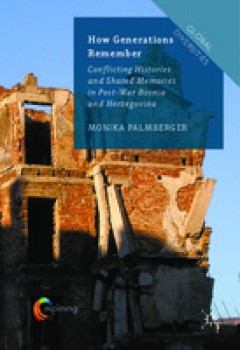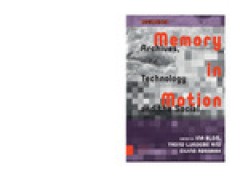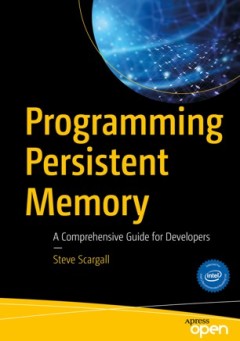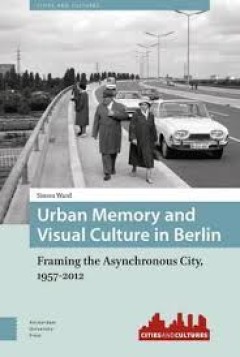Filter by

The Persistence of memory: remembering slavery in Liverpool, 'slaving capital…
The Persistence of Memory is a history of the public memory of transatlantic slavery in the largest slave-trading port city in Europe, from the end of the 18th century into the 21st century; from history to memory. Mapping this public memory over more than two centuries reveals the ways in which dissonant pasts, rather than being ‘forgotten histories’, persist over time as a contested publi…
- Edition
- -
- ISBN/ISSN
- 9781789622577
- Collation
- xvi, 306p.: ill.
- Series Title
- -
- Call Number
- 306.3620942753 MOO p

How generations remember: conflicting histories and shared memories in post-w…
This book provides a profound insight into post-war Mostar, and the memories of three generations of this Bosnian-Herzegovinian city. Drawing on several years of ethnographic fieldwork, it offers a vivid account of how personal and collective memories are utterly intertwined, and how memories across the generations are reimagined and ‘rewritten’ following great socio-political change. Focus…
- Edition
- -
- ISBN/ISSN
- 9781137450630
- Collation
- 1 electronic resource (xvii, 254 pages )
- Series Title
- Global diversities
- Call Number
- 301 PAL h

Memory in motion : archives, technology, and the social
How do new media affect the question of social memory? Social memory is usually described as enacted through ritual, language, art, architecture, and institutions ? phenomena whose persistence over time and capacity for a shared storage of the past was set in contrast to fleeting individual memory. But the question of how social memory should be understood in an age of digital computing, instan…
- Edition
- -
- ISBN/ISSN
- 9789048532063
- Collation
- 331 p.
- Series Title
- -
- Call Number
- 302 MEM m

History and cultural memory in neo-Victorian fiction: Victorian afterimages
History and Cultural Memory in Neo-Victorian Fiction combines innovative literary and historiographical analysis to investigate the way neo-Victorian novels conceptualise our relationship to the Victorian past, and to analyse their role in the production and communication of historical knowledge. Positioning neo-Victorian novels as dynamic participants in the contemporary historical imaginary, …
- Edition
- -
- ISBN/ISSN
- 978023022858
- Collation
- ix, 222 p. ; 23 cm.
- Series Title
- -
- Call Number
- 823.809358 MIT h

Programming persistent memory : a comprehensive guide for developers
Beginning and experienced programmers will use this comprehensive guide to persistent memory programming. You will understand how persistent memory brings together several new software/hardware requirements, and offers great promise for better performance and faster application startup times—a huge leap forward in byte-addressable capacity compared with current DRAM offerings. This revolut…
- Edition
- -
- ISBN/ISSN
- 9781484249314
- Collation
- xxi, 438p. : ill.
- Series Title
- -
- Call Number
- 003.5 SCA p

Urban memory and visual culture in Berlin: framing the asynchronous city, 195…
As sites of turbulence and transformation, cities are machines for forgetting. And yet archiving and exhibiting the presence of the past remains a key cultural, political and economic activity in many urban environments. This book takes the example of Berlin over the past four decades to chart how the memory culture of the city has responded to the challenges and transformations thrown up by th…
- Edition
- -
- ISBN/ISSN
- 9789089648532
- Collation
- 212 pages : illustrations; 24 cm.
- Series Title
- Cities and cultures
- Call Number
- 153 WAR u
 Computer Science, Information & General Works
Computer Science, Information & General Works  Philosophy & Psychology
Philosophy & Psychology  Religion
Religion  Social Sciences
Social Sciences  Language
Language  Pure Science
Pure Science  Applied Sciences
Applied Sciences  Art & Recreation
Art & Recreation  Literature
Literature  History & Geography
History & Geography